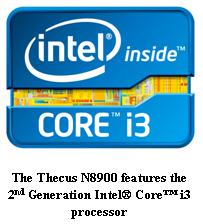From The Blog
-
ConnectWise Slash and Grab Flaw Once Again Shows the Value of Input Validation We talk to Huntress About its Impact
Written by Sean KalinichAlthough the news of the infamous ConnectWise flaw which allowed for the creation of admin accounts is a bit cold, it still is one that…Written on Tuesday, 19 March 2024 12:44 in Security Talk Read 696 times Read more...
-
Social Manipulation as a Service – When the Bots on Twitter get their Check marks
Written by Sean KalinichWhen I started DecryptedTech it was to counter all the crap marketing I saw from component makers. I wanted to prove people with a clean…Written on Monday, 04 March 2024 16:17 in Editorials Read 1575 times Read more...
-
To Release or not to Release a PoC or OST That is the Question
Written by Sean KalinichThere is (and always has been) a debate about the ethics and impact of the release of Proof-of-Concept Exploit for an identified vulnerability and Open-Source…Written on Monday, 26 February 2024 13:05 in Security Talk Read 1109 times Read more...
-
There was an Important Lesson Learned in the LockBit Takedown and it was Not About Threat Groups
Written by Sean KalinichIn what could be called a fantastic move, global law enforcement agencies attacked and took down LockBit’s infrastructure. The day of the event was filled…Written on Thursday, 22 February 2024 12:20 in Security Talk Read 1079 times Read more...
-
NetSPI’s Offensive Security Offering Leverages Subject Matter Experts to Enhance Pen Testing
Written by Sean KalinichBlack Hat 2023 Las Vegas. The term offensive security has always been an interesting one for me. On the surface is brings to mind reaching…Written on Tuesday, 12 September 2023 17:05 in Security Talk Read 2129 times Read more...
-
Black Kite Looks to Offer a Better View of Risk in a Rapidly Changing Threat Landscape
Written by Sean KalinichBlack Hat 2023 – Las Vegas. Risk is an interesting subject and has many different meanings to many different people. For the most part Risk…Written on Tuesday, 12 September 2023 14:56 in Security Talk Read 1848 times Read more...
-
Microsoft Finally Reveals how they Believe a Consumer Signing Key was Stollen
Written by Sean KalinichIn May of 2023 a few sensitive accounts reported to Microsoft that their environments appeared to be compromised. Due to the nature of these accounts,…Written on Thursday, 07 September 2023 14:40 in Security Talk Read 2121 times Read more...
-
Mandiant Releases a Detailed Look at the Campaign Targeting Barracuda Email Security Gateways, I Take a Look at What this all Might Mean
Written by Sean KalinichThe recent attack that leveraged a 0-Day vulnerability to compromise a number of Barracuda Email Security Gateway appliances (physical and virtual, but not cloud) was…Written on Wednesday, 30 August 2023 16:09 in Security Talk Read 2096 times Read more...
-
Threat Groups Return to Targeting Developers in Recent Software Supply Chain Attacks
Written by Sean KalinichThere is a topic of conversation that really needs to be talked about in the open. It is the danger of developer systems (personal and…Written on Wednesday, 30 August 2023 13:29 in Security Talk Read 1889 times Read more...
Recent Comments
- Sean, this is a fantastic review of a beautiful game. I do agree with you… Written by Jacob 2023-05-19 14:17:50 Jedi Survivor – The Quick, Dirty, and Limited Spoilers Review
- Great post. Very interesting read but is the reality we are currently facing. Written by JP 2023-05-03 02:33:53 The Dangers of AI; I Think I Have Seen this Movie Before
- I was wondering if you have tested the microphone audio frequency for the Asus HS-1000W? Written by Maciej 2020-12-18 14:09:33 Asus HS-1000W wireless headset impresses us in the lab
- Thanks for review. I appreciate hearing from a real pro as opposed to the blogger… Written by Keith 2019-06-18 04:22:36 The Red Hydrogen One, Possibly One of the Most “misunderstood” Phones Out
- Have yet to see the real impact but in the consumer segment, ryzen series are… Written by sushant 2018-12-23 10:12:12 AMD’s 11-year journey to relevance gets an epic finish.
Most Read
- Microsoft Fail - Start Button Back in Windows 8.1 But No Start Menu Written on Thursday, 30 May 2013 15:33 in News Be the first to comment! Read 116521 times Read more...
- We take a look at the NETGEAR ProSafe WNDAP360 Dual-Band Wireless Access Point Written on Saturday, 07 April 2012 00:17 in Pro Storage and Networking Be the first to comment! Read 87465 times Read more...
- Synology DS1512+ Five-Bay NAS Performance Review Written on Tuesday, 12 June 2012 20:31 in Pro Storage and Networking Be the first to comment! Read 82022 times Read more...
- Gigabyte G1.Sniper M3 Design And Feature Review Written on Sunday, 19 August 2012 22:35 in Enthusiast Motherboards Be the first to comment! Read 80331 times Read more...
- The Asus P8Z77-M Pro Brings Exceptional Performance and Value to the Lab Written on Monday, 23 April 2012 13:02 in Consumer Motherboards Be the first to comment! Read 70981 times Read more...
Displaying items by tag: Storage
Thecus N5550 NAS Intro and Teardown
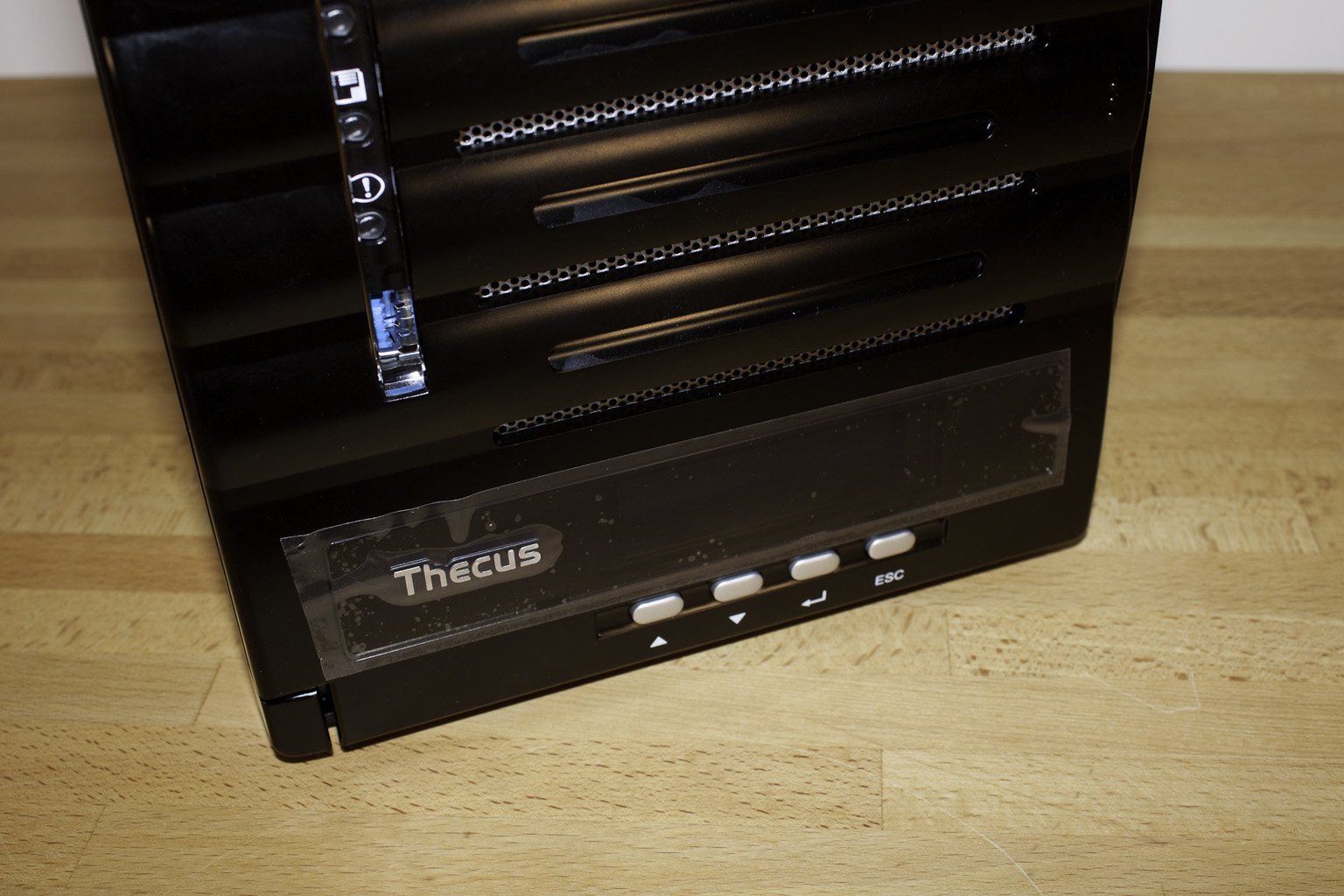 |
With the big push for everything in the cloud we have been focusing on ways to consumers and businesses to bring their data back into their own control. One of the least expensive methods for this is through the use of a NAS (Network Attached Storage) device. These are devices that have a minimum of two drive bays and allow for you to set up RAID (Redundant Array of Inexpensive Disks) Volume for performance and/or redundancy. Today in the Lab we have a five-bay NAS device from Thecus. This is an Atom based system with support for up to 15TB of RAW space and 3GB of memory. So let’s take a look at the Thecus N5550 and see what this $600 (empty) NAS has to offer as we dig deep into its design, build and features.
Thecus N2800 2-Bay NAS Design and Feature Review
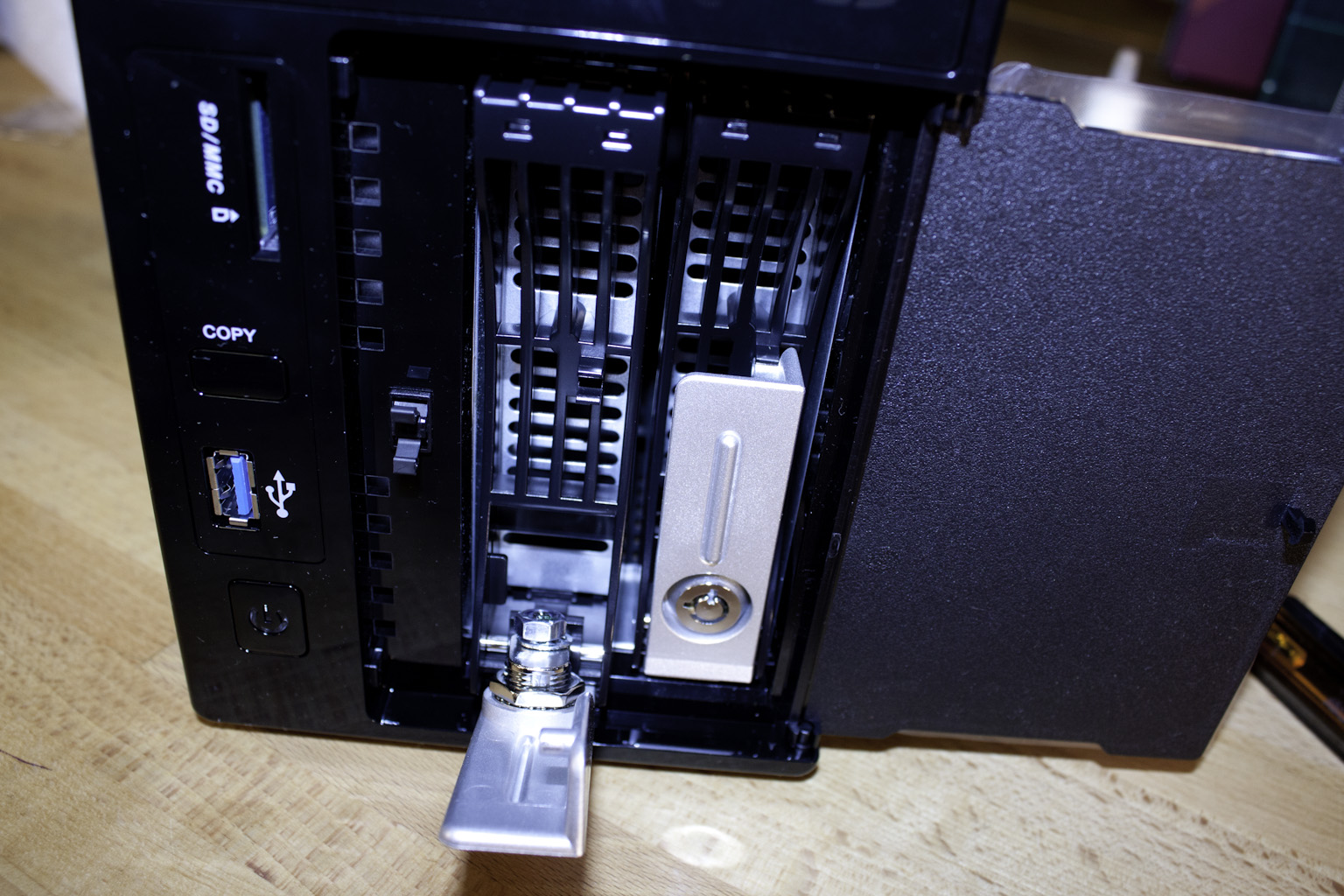 We have another network storage device in our labs; the Thecus N2800. This is a 2-bay NAS with dual network controllers, USB 3.0, USB 2.0, and eSATA connectivity. We have tinkered around with some of Thecus’ products before and found that they usually are looking at getting you solid performance, but you are not going to get a ton of frills with them. This is not to say they do not have their own feature set that is worth talking about, but that in the past we have found them to be very straight forward products. Good performance, good price and they will do what you need them to. We have been told that this has changed at Theucus and they are moving in the direction of adding in a wider feature set with their NAS Products. So let’s take a look and see if there has been any improvement.
We have another network storage device in our labs; the Thecus N2800. This is a 2-bay NAS with dual network controllers, USB 3.0, USB 2.0, and eSATA connectivity. We have tinkered around with some of Thecus’ products before and found that they usually are looking at getting you solid performance, but you are not going to get a ton of frills with them. This is not to say they do not have their own feature set that is worth talking about, but that in the past we have found them to be very straight forward products. Good performance, good price and they will do what you need them to. We have been told that this has changed at Theucus and they are moving in the direction of adding in a wider feature set with their NAS Products. So let’s take a look and see if there has been any improvement.
Patriot Memory's PyroSE 120GB SSD Takes a Turn In Our Lab
 Solid State drives are what the enthusiast market wants for storage. This has been the case since the first SSDs hit the market a few years ago. However, the drives were too expensive for most and ended up being available to very few. In the last year or so the price per Gigabyte has dropped to almost $1 making the SSD a more viable option for not only the enthusiast but also for the regular consumer market. Additionally with the introduction of high-performance, low cost SATA 3.0 Controllers for SSDs the performance of these drives has made them almost too good to pass up. As far as completion and variety the SSD market is also better now than the traditional magnetic media market. There are simply more companies making SSDs than there are making HDD. We have already taken a look at a few of these in the past and are now working into the new line of SATA 3.0 drives complete with the SandForce 2281 SATA 3.0 controller. Today we have one from Patriot Memory, the PyroSE 120GB solid state drive. Let’s see just how fast it is.
Solid State drives are what the enthusiast market wants for storage. This has been the case since the first SSDs hit the market a few years ago. However, the drives were too expensive for most and ended up being available to very few. In the last year or so the price per Gigabyte has dropped to almost $1 making the SSD a more viable option for not only the enthusiast but also for the regular consumer market. Additionally with the introduction of high-performance, low cost SATA 3.0 Controllers for SSDs the performance of these drives has made them almost too good to pass up. As far as completion and variety the SSD market is also better now than the traditional magnetic media market. There are simply more companies making SSDs than there are making HDD. We have already taken a look at a few of these in the past and are now working into the new line of SATA 3.0 drives complete with the SandForce 2281 SATA 3.0 controller. Today we have one from Patriot Memory, the PyroSE 120GB solid state drive. Let’s see just how fast it is.
Thecus introduces the N4100EVO; the first Dual-Core Cavium-Based 4-bay NAS
Thecus® N4100EVO: The First Dual-core Cavium-based 4-bay NAS
Intelligent design: Evolve your digital office
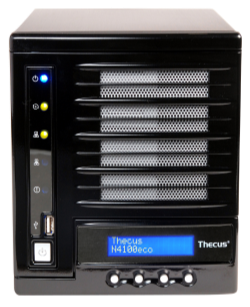 12/12/2011 – Taipei (Taiwan): Thecus is well known in the market for always putting innovative hardware and state of the art technology on the table for a fair price in order to guarantee our customers the best value. Thecus’s new N4100EVO NAS offer a broad range of advanced features and differentiate themselves with low-energy hardware for those who place strong value on cutting down their electricity costs and carbon footprint. This cost-effective hardware is the first four-bay NAS on the market to feature the speedy and efficient dual-core Cavium CPU to get the quick transfer speeds necessary for large backups and heavy use. The N4100EVO is designed to change the way you run your office, at home or at work.
12/12/2011 – Taipei (Taiwan): Thecus is well known in the market for always putting innovative hardware and state of the art technology on the table for a fair price in order to guarantee our customers the best value. Thecus’s new N4100EVO NAS offer a broad range of advanced features and differentiate themselves with low-energy hardware for those who place strong value on cutting down their electricity costs and carbon footprint. This cost-effective hardware is the first four-bay NAS on the market to feature the speedy and efficient dual-core Cavium CPU to get the quick transfer speeds necessary for large backups and heavy use. The N4100EVO is designed to change the way you run your office, at home or at work.
DecryptedTech's new Enterprise Testing Lab
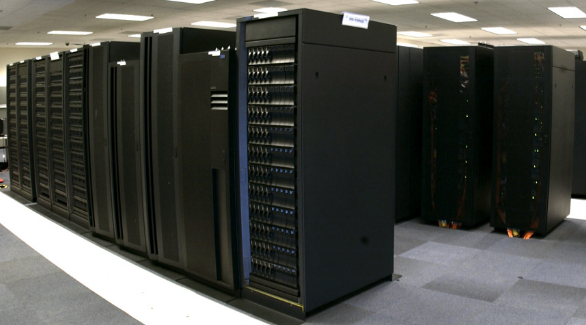 DecryptedTech is now moving into Enterprise class testing. To accomplish this we have built a small Enterprise class network in our lab complete with two iSCSI SANs , TWO NAS Devices, multiple Gigabit Switches, and two ESX Hosts with Multiple VMs to keep things interesting. We will begin testing Enterprise class hardware and Software. We will be looking at these products with an eye on how the technology differs from the average consumer class products as well as how this technology will benefit the consumer as it trickles down to their market space. We do have our first product in the lab right now, but before we kick that off let’s talk about the new DecryptedTech Enterprise class Lab in detail.
DecryptedTech is now moving into Enterprise class testing. To accomplish this we have built a small Enterprise class network in our lab complete with two iSCSI SANs , TWO NAS Devices, multiple Gigabit Switches, and two ESX Hosts with Multiple VMs to keep things interesting. We will begin testing Enterprise class hardware and Software. We will be looking at these products with an eye on how the technology differs from the average consumer class products as well as how this technology will benefit the consumer as it trickles down to their market space. We do have our first product in the lab right now, but before we kick that off let’s talk about the new DecryptedTech Enterprise class Lab in detail.
The Switches -
The backbone of our lab consists of five Gigabit Switches. Two of these are from TRENDNet TEG-160WS and the TEG-240WS. Both of these are Web Smart Managed switches and have 2GB trunks setup between the two for faster switching between them. Next we have a TRENDNet TPE-80WS POE (Power over Ethernet) 8 Port Gigabit switch which offers quite a bit more controls than the TEG line and is our master switch for the RSTP (Rapid Spanning Tree Protocol ) topology ion place. Our second vendor in the lab is NETGEAR, they have provided us with their ProSafe GS110TP POE 10 port Gigabit Switch (two of these ports are fiber uplink) and a GS108T 8 Port Gigabit Switch. As we mentioned the switches are part of an RSTP topology and each one has different components attached to ensure that the loads is distributed across the network backbone.
The Storage -
Our Lab has three NAS devices one of which is fully iSCSI capable (and works with VMWare) the two non-iSCSI NAS devices are the Seagate Black Armour 440 and a Thecus 5200 Pro. The Thecus 5200 Pro has 3TB of space and serves as an indirect file server while the BA-440 has 4TB and acts as a media storage server and backup target. The last NAS on the list is a Synology DS 201, this has a full 1TB of space and holds image files used for deployment of VMs and the installation of software into the virtual environment. 
The last storage box we are rather proud to have. It is a custom built NAS/SAN with an AMD Phenom II x4 910e 4GB of memory on the Minix 890GX MiniITX motherboard and a 250GB OS Drive. For the OS we dropped in Windows 2008 R2 Storage Server. Of course that is not the thing that we are most proud of. For the actual storage we went with 4 Seagate 2TB Constellation ES Nearline SAS 2.0 drives (ST32000444SS) running in RAID 5 on an LSI MegaRAID SAS 8708EM2 SAS 6GB/s PCIe controller. It is this device with its two teamed NICs that provides the central iSCSI based storage for our VMWare cluster.
The VMWare Cluster -
To make sure that we covered all of our bases we built two VMware ESX Hosts for a single cluster; one of them with Intel Xeons and the other featuring AMD Magny Cours CPUs. Both of these systems have Kingston Server Premier Memory installed (128GB between the two systems). The motherboards in each are from Asus and represent the mid-range of their server line up.
The Intel System specs are as follows;
2x Intel Xeon L5530 2.4GHz CPUs
48GB of Kingston Server Premier RAM (6 x8GB)
2x Kingston SSD Now 128GB drives in RAID 1 (for the ESX Host Software)
Asus Z8NA-D6 motherboard
Cooler Master UCP 1100 Power Supply
The AMD half of the Cluster looks like this
2x AMD Opteron 6176 SE CPUs (12 Cores each for 24 physical cores)
92GB of memory (80GB Kingston Server Premier 10 x 8GB and 12GB Kingston Value Select Server memory 6 x 2GB)
2 x Seagate 500 GB Savio II SAS 2.0 Drives in RAID 1
Asus KGPE-D16 Motherboard
Cooler Master UCP 1100 Power Supply
The cluster is running VMMware ESX 4.1 (moving to 5.0 soon) and currently hosts 30 Virtual Machines all stored on our Custom Built NAS/SAN. Not all of these systems are powered on 24/7 (my power bill would be outrageous) but they are all on and operational when we have hardware in the lab that needs testing. Under normal conditions about 7 servers are live. These include an exchange cluster (Database Availability Group), a SQL server and a virtualized domain controller. Some of the other servers that run when under testing conditions are, two additional SQL servers (SharePoint and CRM) a two node SharePoint farm, a Xen Desktop test setup with three desktops, a webserver with a full copy of DecryptedTech on it) and virtualized Windows 2008 R2 domain controller. We feel this should be able to simulate the load of a fairly average business network. 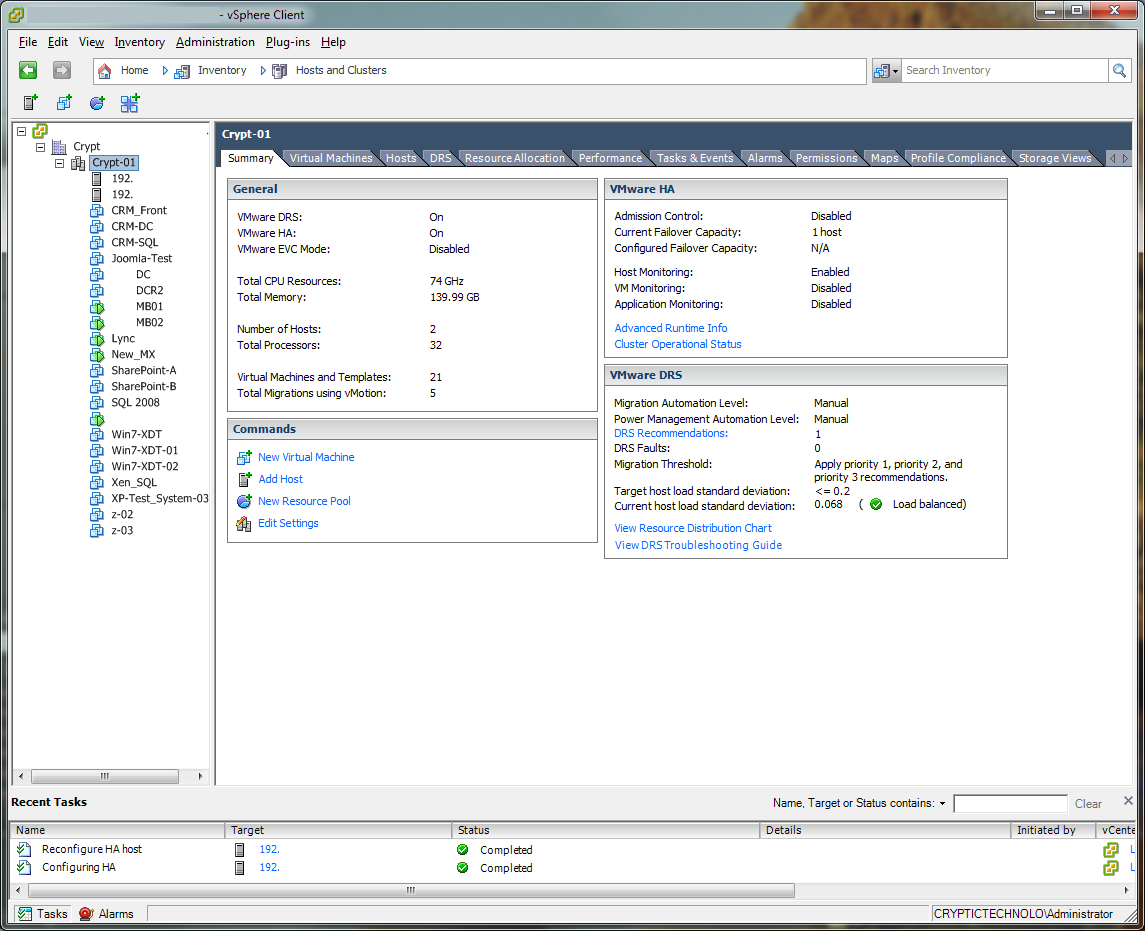
In addition to the virtual systems there is a standalone Domain Controller (Windows 2008 R2) and a complete Microsoft Forefront Treat Management Gateway to control external access to the test environment.
In all the testing lab has taken a giant leap forward and we hope to be able to bring you some in-depth reviews of hardware and software that while outside the average consumer range will give you a glimpse of what will be coming down the road for the consumer market in the not so distant future.
Discuss this in our Forum
Thecus® Announces the 2nd Generation Intel® Core™ i3-Based N8900
|
|||||||
|
|||||||
|
© 2004–2010 Thecus® Technology Corp. All rights reserved. |
New Patriot Memory Pyro SATA III brings cutting-edge SandForce processor to the
 FREMONT, CALIF., USA – August 3rd, 2011 - Patriot Memory, a global pioneer in high-performance memory, NAND flash, storage, and enthusiast computer products, today expanded their new line up of SATA III solid-state drives with the launch of its new Pyro line powered by SandForce’s® new SF-2281 SSD processor. The Patriot Memory Pyro series raises the bar on what’s expected from performance class SSD drives delivering enterprise-like performance to consumer desktops and notebooks.
FREMONT, CALIF., USA – August 3rd, 2011 - Patriot Memory, a global pioneer in high-performance memory, NAND flash, storage, and enthusiast computer products, today expanded their new line up of SATA III solid-state drives with the launch of its new Pyro line powered by SandForce’s® new SF-2281 SSD processor. The Patriot Memory Pyro series raises the bar on what’s expected from performance class SSD drives delivering enterprise-like performance to consumer desktops and notebooks.
The Pyro series utilizes the new SandForce® SF-2281 processor enabling it to eclipse previous mid-tier SSD performance scores with up to a blazingly-fast 550MB/s sequential read and up to 515MB/s sequential write speeds provided through a SATA 6.0 Gb/s interface. The Pyro series will feature a standard 2.5-inch form factor for compatibility with notebooks and select desktops and will ship with the latest 3.1.9 firmware
The Patriot Memory Pyro will continue to aggressively expand on what consumers can expect out of performance class solid state drives.” Says William Lai, Patriot Memory’s Product Manager. “With near enterprise level performance by utilizing the new SandForce® SF-2281, coupled with Patriot Memory's reputation; Pyro will deliver unmatched price per performance."
General details
- New Patriot Pyro series SSDs
- 60GB, 120GB, & 240GB capacities
- SandForce® SF-2281 SSD processor
- SATA 6.0 Gbps interface
- Up to 550MB/s sequential read speeds
- Up to 515MB/s sequential write speeds
- Up to 85K 4K random write IOPS
- TRIM Support
About Patriot Memory
Patriot Memory designs, manufactures and markets high performance, enthusiast memory modules, flash products, and computing technologies. Patriot products have become world renown for their extreme performance, reliability and innovation. Patriot Memory sells its products through original equipment manufacturers, retailers, e-tailers and distributors throughout the world with operations in North America, Asia and Europe. Patriot Memory LLC was founded in 1985 and is headquartered in Fremont, California, USA.
All company and/or product names may be trade names, trademarks and/or registered trademarks of the respective owners with which they are associated. Features, pricing, availability, and specifications are subject to change without notice.
Chicken Little tells us Lion kills our NAS devices
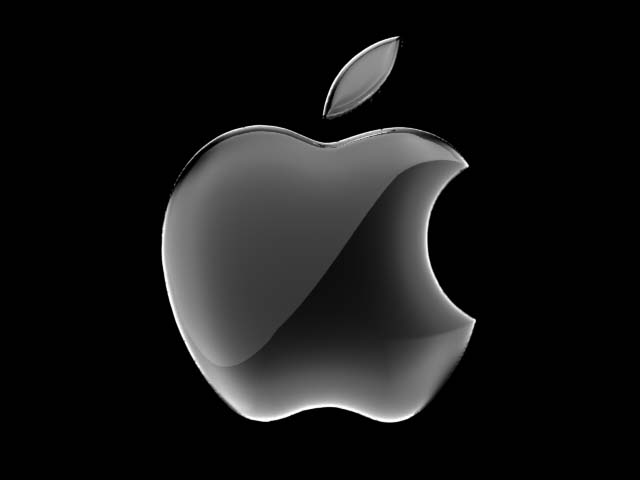 You may have heard that Apple’s new OS, Lion is making all of the NAS appliances incompatible. Well, we can tell you that the reports of these appliances demise have been greatly exaggerated. In fact three days before the launch we heard from multiple vendors that they have new firmware updates that will be available to keep compatibility with Lion and its new version of Time Machine.
You may have heard that Apple’s new OS, Lion is making all of the NAS appliances incompatible. Well, we can tell you that the reports of these appliances demise have been greatly exaggerated. In fact three days before the launch we heard from multiple vendors that they have new firmware updates that will be available to keep compatibility with Lion and its new version of Time Machine.
NETGEAR has even sent us theirs and we are at work testing is on their ReadyNAS Pro 6. So when you hear about how this or that product does not work, remember… you are listening to people that are ALWAYS trying to get a scoop sometimes they might not take the extra time to verify things before they push something like this out.
Keep checking back as we work to demystify some of what is out there on the net and give you the straight information.



